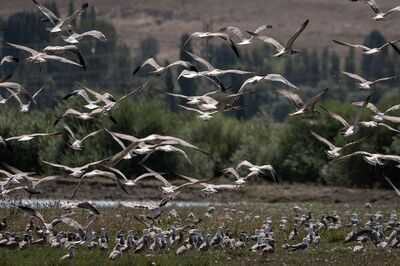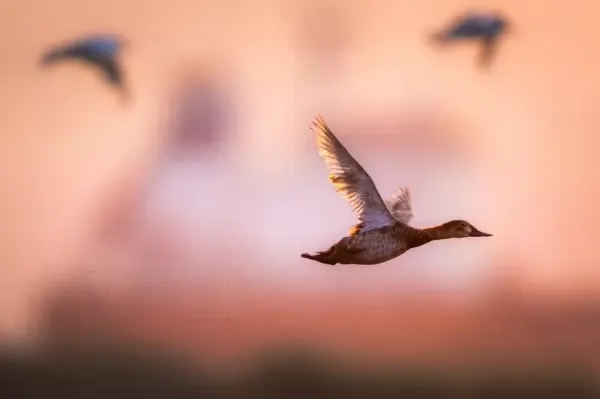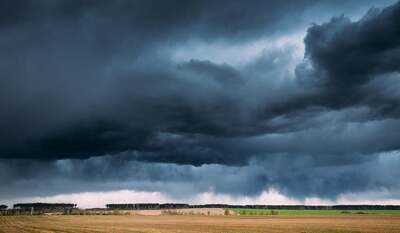
The alarm has been raised for humanity asbirds start behaving in unsettlingways across the globe, with the natural balance, food and medicines all at risk.
Scientists have noted with concern that birds across the US are not following their usual migration patterns as global warming throws off the temperature queues which prompt them to flee cooler weather.
Andrew Farnsworth, researcher at Cornell University, warning that the new migration patterns could lead to manybird species dying- altering the entire natural habitat and the natural balance forever.
Birds are a crucial part of wildlife as they pollinate plants and control pests. Roughly five percent of the plants used for human food and medicine are reliant on birds as pollinators.
READ MORE: Urgent coffee machine alert issued to anyone who uses one at home
READ MORE: Teddington School incident: Mystery as 'lots of police and ambulances' swarm to scene

Farnsworth, a migration ecologist, put the change in behaviour down to rising temperatures in places like the Arctic and northern forests, along with other global warming related issues like wildfires, which are threatening birds lives.
Overall, the National Audubon Society has warned that 389 North American bird species will become vulnerable to extinction within the next 50 years.
Higher temperatures have confused the changing of the seasons meaning birds in warming region leave their nests earlier or later than usual, then arrive at breeding or feeding grounds before insects or plants are available as food sources.
Birds can end up starving, not finding suitable shelter, and struggling to find a mate, leading to smaller and smaller populations as less birds survive the winter.
Several species in the US have already been affected by this changing behavior, including the Black-throated Blue Warbler, Red Knot, and Swainson's Thrush.
Researchers with Audubon found that Black-throated Blue Warblers have seen their populations drop off in the US due to climate changes, leaving the animals with less food after migrating.
A shorebird - the red Knots, have seen their populations decline by around 75 percent. The Cornell Lab found that warming Arctic temperatures disrupted their breeding grounds, while rising sea levels have shrunk their coastal feeding sites.
The Swainson's Thrush, which migrates after breeding in Canada and Alaska to Central and South America’s winter, has been dying out due to climate-driven habitat loss from wildfires and warming forests in their migratory spots.
This has destroyed their nesting and stopover sites in California, Oregon, Washington, New York, Maine, and Colorado.
Farnsworth said: “We do see birds track climate change, obviously some are managing to do it, but the challenge is for those that can't.”
Researchers have noted that people who feed birds make the problem even worse, making them less incentivized to leave and by attracting predators that attack birds who stay.
-
UGC Approves 101 Universities For Online And Distance Learning Courses In 2025-26

-
Weather Update Today: Heavy To Very Heavy Rainfall Is Predicted In These Regions Of India; IMD Predicts Orange Alert

-
Warning issued to UK drivers as Rachel Reeves tipped to launch 'new' car tax

-
Warning to millions of Brits hoping to retire before 67

-
American goes to Oktoberfest and 'everyone laughs' at outfit mistake
